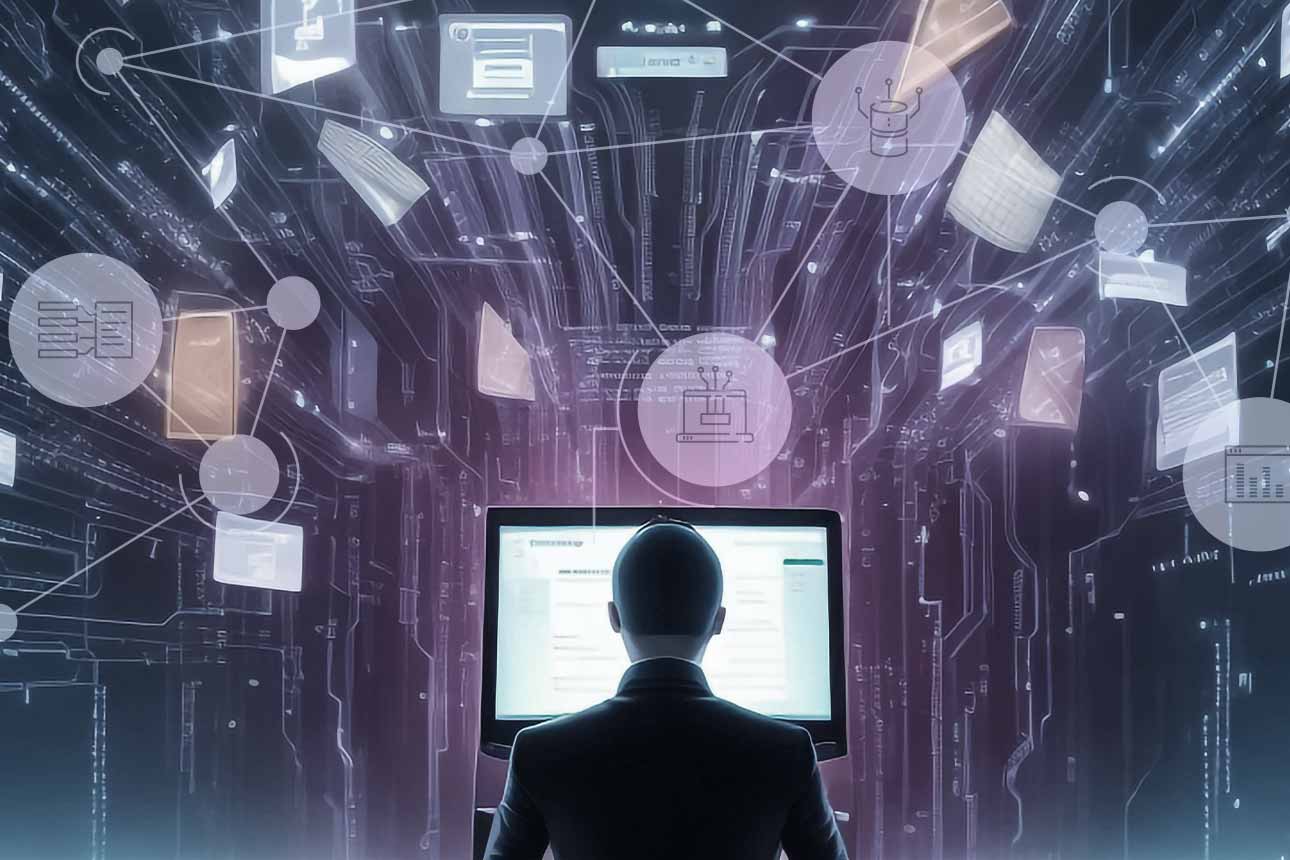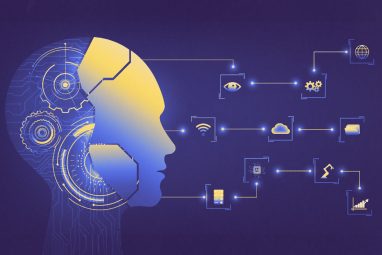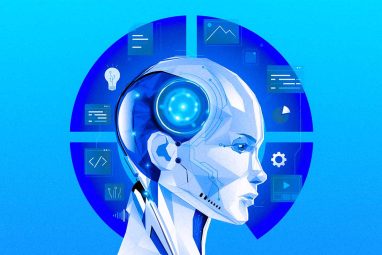More Than Half of Companies in META Use AI and IoT in Their Business Processes
Experts recommend that business owners ensure they have the right cybersecurity solutions to secure them.
Topics
News
- Deloitte and AWS Forge $1 Billion Alliance to Accelerate Digital Transformation in the Middle East
- Over 40% of Agentic AI Projects Expected to Fail by 2027, Report Finds
- Guardian AI Agents Poised to Take 15% of Agentic AI Market by 2030, Gartner Says
- Deloitte Rolls Out Global Agentic Network to Accelerate AI Adoption in the Middle East
- AI Research Forum and Summit Focused on Agentic AI Announced
- Cisco's New Quantum Entanglement Chip Aims to Accelerate Distributed Computing

[Image source: Pankaj Kirdatt/MITSMR Middle East]
In an increasingly digital and interconnected world, robust cybersecurity has never been more critical. While interconnected technologies bring immense business opportunities, the advancing connectivity and interdependence between devices has brought new challenges – vulnerability to serious cyber threats.
Cybersecurity measures must be strengthened with an increasing amount of data being collected and transmitted.
Businesses integrating AI and IoT into their infrastructure must protect critical assets, build customer confidence amid the expanding interconnected landscape, and ensure adequate resources are allocated to cybersecurity to use the new solutions to combat the incoming challenges of interconnected tech.
A recent Kaspersky study has revealed that more than 50% of companies have implemented Artificial Intelligence (AI) and the Internet of Things (IoT) in their businesses’ infrastructures.
Additionally, 33% plan to adopt these interconnected technologies within two years. In the Middle East, Turkey, and Africa (META) region, 55% of respondents have implemented AI, and 34% plan to do so. In comparison, IoT is used in 44% of organizations, with 45% planning to use it. Experts recommend that business owners ensure they have the right cybersecurity solutions to secure them.
Interconnected technologies transform enterprises, enabling them to gather more data and automate processes. But they also bring new risks and challenges when securing business assets and safeguarding customers.
Kaspersky conducted a study, Connecting the Future of Business, which aims to help companies stay ahead of the changes interconnected technologies bring, posing critical questions regarding the way cybersecurity must adapt to them.
In this survey, Kaspersky sought to examine what respondents think of interconnected technologies – AI, IoT, Augmented reality (AR), Virtual reality (VR), digital twins, 6G, converged cloud networks, and
Web 3.0, among others.
The research found that AI and IoT are already used by 54% and 51% of companies, respectively (55% and 44% in META). One in three plans to adopt them within two years (in META, 34% plan to use AI and 45% IoT). Data spaces are used by 32% of businesses, with nearly half (49%) intending to adopt them soon (34% and 45% in META).
Other interconnected technologies (digital twins, AR, VR, web 3.0, 6G, and converged cloud networks) are used by only one in five (20-21%) companies participating in the survey, but more than 70% are considering integrating them into their business processes soon. The figures are similar in the META region, with just 6G and converged cloud networks being a bit different – 18% of respondents already use them, and 80% have them in the plan.
Because AI and IoT have become so widespread, they are vulnerable to new vectors of cyberattacks. According to the research, 16-17% of organizations think AI and IoT are “very difficult” or “extremely difficult” to protect (18% and 16% in META). In comparison, only 8% of the AI users and 12% of the IoT owners believe their companies are fully protected (9% and 14% in META).
However, as we can see, the less widespread the implementation of technologies, the more difficult it is for companies to protect them and vice versa. For instance, the least adopted AR/VR and converged cloud networks are the most challenging technologies to protect in terms of cyber defense, with 39-40% of companies saying they are difficult to secure (37-38% in META).
Given the scale of change that interconnected technologies are likely to bring, organizations must develop a strategy to implement and protect them. Based on the research findings, Kaspersky recommends four effective ways to ensure organizations are prepared to protect interconnected technologies:
Adopt secure-by-design principles. By integrating cybersecurity into each stage of the software development lifecycle, secure-by-design software and hardware become resilient against cyberattacks, contributing to the overall security of digital systems.
Train and upskill your workforce. Building a cyber-aware culture requires a comprehensive strategy that empowers employees to gain and put knowledge into practice. InfoSec professionals must advance their skills and defend their companies against attacks.
Upgrade your cybersecurity solutions and use centralized and automated platforms. Companies adopting interconnected technologies need cybersecurity solutions with more advanced features, enabling them to collect and correlate telemetry from multiple sources and provide effective threat detection and rapid automated response.
As many AI solutions are built on containers, it’s important to secure the integrated infrastructure with cybersecurity products that allow companies to detect security issues at every stage of the app lifecycle, from development to operation.
Meet regulations to avoid legal problems or reputational damage by ensuring your cybersecurity practice meets changing standards and legal requirements.
Keen to know how emerging technologies will impact your industry? MIT SMR Middle East will be hosting the second edition of NextTech Summit.





